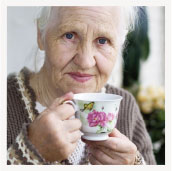GIVEN the tens of millions of people in retirement or about to enter it, it’s surprising how few plan for something most of them will eventually need: help doing basic tasks at home. But perhaps it is not so surprising: It’s like learning a difficult new language late in life.
Only about 1 percent of those aged 65 to 74 live in nursing homes, the Census Bureau reports. Most retirees continue to live at home as they age, even though many do not have relatives nearby to assist them as it becomes harder to handle daily activities because of declining health, mobility or cognitive difficulties.
Of those who need the help most, many won’t admit they need it or obtain assistance willingly on their own. They fear loss of independence and becoming a burden to their families. This is an issue I’m facing in my own family and it’s difficult to navigate.
For most older people, it is far preferable to stay at home rather than enter a nursing home. But it isn’t easy to make it work. Just ask Coleen Wagner, who lives in Saratoga, Calif., and has helped several relatives find home care. That includes, most recently, her mother-in-law, who was 85 and had dementia at the time. She has since died.
Home care, often referred to as caregiving or nonmedical in-home services, provides help with the activities of daily living. Professionals who perform these services may not need licensing or certification, although many are certified nursing assistants. Requirements vary from state to state.
“Home care is about quality of life and ensures that chronic conditions are being addressed and gives family caregivers peace of mind that their loved ones are safe at home,” said Phil Bongiorno, executive director of the Home Care Association of America, a trade group. “A lot of people don’t know what home care is, but it’s playing an increasingly important role in maintaining the health and safety of seniors across the country.”
Home health aides or assistants fill in the gaps for family members who either can’t be with a loved one or are unable to provide comprehensive services. Aides provide daily help with bathing, toileting, dressing, eating and shopping. They can stay for a few hours a day or overnight, depending upon the needs of the client. What they don’t do is provide nursing services, therapies or other medically related tasks, although they may assist with home health needs.
The idea behind home care is to keep a person living independently at home for as long as possible. That will not only avoid the huge expense of an assisted-living facility or nursing home, but may lead to better overall health and quality of life.
While continuing care communities offer a promising alternative for some, many require deposits of up to $1 million plus monthly fees running in the thousands of dollars. Providing home care is not only more cost-efficient, it’s least disruptive to loved ones.
Mike Steiner, who is assisting his 94-year-old great-aunt Dorothy, sees home care as a way for her to remain in her home and relatively independent. He hired a veteran of the war in Afghanistan to care for her. At various times, he has also assisted his mother and stepmother with finding home care.
Mr. Steiner, who served four years in the Navy and 20 years as a project manager for Motorola, turned his experience with his family into a business. When he was laid off from Motorola in 2012, he bought a Right at Home franchise, which now has 55 employees serving an area north of Chicago.
Mr. Steiner’s great-aunt resisted in-home aid, but she eventually agreed. “The problem with me is that I’ve got a 50-year-old brain in a 94-year-old body and they just aren’t in sync anymore,” she told him. “I don’t really need a caregiver but I’m 94 years old and I’m going to indulge.”
When deciding what kinds of home care services are needed, the first layer of decision-making is often dictated by medical professionals. If someone is being discharged from a hospital or rehab facility, they may need in-home medical care. That’s mostly covered by Medicare, but on a limited basis. Although there’s some local support for home care assistance, most Americans pay for it out of pocket. Some long-term care insurance policies may cover home care.
Although regulated by the states in varying degrees, home health professionals are usually independent or employed by small private firms. Nearly five million Americans are being served by 12,000 home health agencies, which provide referrals in exchange for a portion of the service fee to clients, according to the Centers for Disease Control and Prevention. More than 80 percent are for-profit.
Mr. Steiner’s firm charges $18 to $30 an hour, depending on the services needed. The highest rate is for 24-hour in-home care, where the assistant stays in the home. That typically averages from $250 to $500 a day.
Nationally, home health aides and homemakers — the term for a professional who provides light housekeeping — charge a median rate of $20 per hour, according to a survey by Genworth, an insurance company. That compares with more than $220 a day for a nursing home and about $120 a day for assisted living.
However you approach providing home care, keep in mind there are no uniform national or state standards. “It’s terribly fragmented,” said Bonnie Burns, a consultant with California Health Advocates. “We don’t have a system in this country for people who need this kind of care. That’s why we’re struggling.”
To find home care support, you can contact local agencies or try county health departments or those providing services for the elderly. Internet searches will turn up a variety of agencies, although there’s no rigorous service rating system to evaluate these firms. The best advice often comes from someone from a family with personal experience.
“It’s hard to get quality home care information and keep it up-to-date,” says Rosalie Kane, a professor at the University of Minnesota, who studies long-term care issues and needed home care services for her father and mother. “It’s caveat emptor.”
When considering a home care company or professional for a loved one, you should insist that the firm do a thorough review of the daily needs of the client and offer a customized care plan. Make sure any agency or firm does complete background checks of its aides, has a quality control system and will handle any problems promptly and professionally.
If you need specific medical services at home for yourself or a parent, the support system is much more elaborate. Medicare, for example, provides listings and evaluations of health care agencies through its Home Health Compare site. You can find nearby agencies through a ZIP code search and see patient care quality ratings and re-hospitalization rates. Medicare also covers some hospice care.
When navigating the home care route, be prepared to roll with the punches. The person you’re trying to help may not want a stranger at home and may be mistrustful of the aide. Watch the situation closely and request changes if someone doesn’t work out. Finding the right person is often hit or miss.
“It was a nightmare,” Ms. Wagner said of dealing with her mother-in-law, who thought people were stealing from her, believed nothing was wrong with her mind and didn’t want to pay for home services. “I just started calling people.”
While it may take some time, finding a qualified home care professional is worth the effort. The right person can deal with the situation at hand and relieve some of the unrelenting anxiety and fear that vex a family when an older relative is living at home alone without support.
++++++++++++++++++++++++++++++++++++++++++++++
To see the original article, click here.





